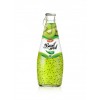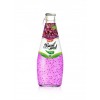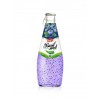Most bags that are manufactured from plastic are made from corn-based materials, like polylactic acid blends. Biodegradable plastic bags are nowadays as strong and reliable as traditional (mostly polyethylene)-bags. Many bags are also made from paper, organic materials, or polycaprolactone.
What Does Biodegradable Mean?
Biodegradable refers to a product breaking down into natural elements, carbon dioxide, and water vapor by organisms like bacteria and fungi. Technically, just about everything is biodegradable, although it will take hundreds of thousands of years for most things to biodegrade.
To earn a biodegradable label, products and materials must quickly decompose into natural materials. Third-party certifiers typically restrict acceptable breakdown times between six and nine months. Discover the benefits of biodegradable products below.
Biodegradable products break down much faster than other types of products.
Biodegradable products break down into carbon dioxide, water vapor, and organic material, which aren't harmful to the environment.
Typically, they're made from sustainable materials and plant by-products, such as cornstarch or sugarcane.
Biodegradable Plastic Bag
Choose Biodegradable Plastic Bag ;to tackle pollution problems from the supply chain by minimizing conventional plastics. We supply plastic bags made from biodegradable materials fabricated through a proprietary manufacturing process. The biodegradable materials are combined with traditional plastics to enhance the required qualities without reducing the quality of the final product.
The proprietary manufacturing process entails converting potato plant-based carbohydrates to an amorphous, 100% natural bio-based polymer. The polymer is then fused with conventional plastics, recycled plastics, and bioplastics to enhance features like durability and lightweight without detracting from the polymer's biodegradability.
Reduce conventional plastic to create plastic bags that are highly durable and biodegradable. By minimizing the supply of traditional plastics in the market, we’ll help further enhance the prospects of a future free from plastic pollution. Stream Peak’s Biodegradable Plastic Bags offer several benefits.
High Durability
The enhanced film strength allows a reduction in thickness. Plant-based plastic bags are much more durable than their fossil-fuel-based counterparts. The proprietary manufacturing process fuses the plant-based polymers with certain conventional plastics to increase their tensile strength, making for highly durable yet lightweight, biodegradable bags.
Reducible and Industrially Recyclable
Our Biodegradable Plastic Bags are created with recycling in mind. When they are disintegrating into biomaterial in the soil or ocean bed, the disposable, biodegradable bags can be processed through a recycling process over seven cycles. Either way, it’s implausible for our plastic to end up clogging our ocean and waterways or contributing in any way to plastic pollution.
Reduction of Carbon Footprints
By minimizing the need to source plastic from fossil fuel, our Biodegradable Plastic Bag options will help reduce our carbon footprints to make way for a cleaner, greener future.
No Fragmentation
Plastic bags cause biodegradation to take place without fragmentation. It also allows the PBAT (Polybutylene Adipate Terephthalate) to biodegrade in simulated marine environment conditions and lowers the temperature required.
Certifications
Our Biodegradable Plastic Bags are TUX ok compost & marine biodegradable and 100% USA Certified biobased products.
Why Switch to Biodegradable Garbage Bags?
According to the Center for Biological Diversity, a plastic bag takes 1,000 years to degrade in a landfill. And when bags do decompose, they can leach toxins and microplastics into the environment. It's difficult to completely abandon plastic, but we can take simple steps toward reducing our environmental footprints by switching to products such as biodegradable garbage bags.
Although compostable and biodegradable plastics take longer to break down in a landfill than they would in an open environment, they can still be more eco-friendly than using traditional plastic bags. Below are some reasons you may consider replacing your plastic trash bags with more eco-friendly alternatives:
Biodegradable bags produce fewer greenhouse gas emissions over their lifetime because the plants they’re made from (often corn or sugarcane) absorb carbon while growing. This offsets the carbon they produce when breaking down. One study even found that switching to corn-based bioplastics could cut U.S. greenhouse gas emissions by up to 25%.
Biodegradable and compostable trash bags break down up to 1,000 times faster than regular garbage bags in the right environments. Biodegradable bags start their decomposition process when exposed to moisture or organisms such as bacteria and fungi. Compostable bags break down at a faster rate than conventional bags as well, but they usually require high heat to break down, so they should be disposed of at commercial composting facilities.
Compostable bags will break down fully and will not turn into microplastics like traditional plastics and the bioplastics in some biodegradable plastic bags will.
Biodegradable Dog Poop Bags, to Lower Your Plastic Consumption as a Pet Parent
Becoming a pet parent inevitably raises your environmental impact, between dog toys that come and go, a kibble that comes in single-use packaging, and the biggest culprit: poop bags. Consider how many times your dog does the deed daily. Now think about how many bags that uses. Although reusable contraption is an option, biodegradable dog poop bags ;are your best option.
It isn't safe to toss dog poop in your backyard or garden because of the bacteria it carries, and it isn't really worth tossing in your compost, because its nutritional value is pretty low and it smells. The best way to dispose of it is to flush the poop — then compost the bag, if it's biodegradable. ;
Lucy & Co.'s compostable poop bags are extra thick and they're totally leak-proof, so you don't need to worry about any unfortunate mishaps. Despite their durability, however, they're compostable, as they're entirely made from corn. Each bag dons different cute designs on them so you can pick up poop in style — although your pup won't get to appreciate any of them, they're bound to make your morning.
Profitable Business Ideas- Biodegradable Tableware from Corn Starch (Maize Starch, or Corn Flour). Eco-Friendly Business Ideas for Startup.
Biodegradable tableware ;is an alternative to tableware products derived from plastic. Manufacturers are keen on the production of biodegradable tableware from biodegradable waste. Residual by-products of sugarcane extraction, rice bran, wheat, and maize are a number of the raw materials leveraged to manufacture biodegradable tableware. Furthermore, manufacturers are exploring recyclable waste such as fallen palm leaves and paper waste so as to broaden the horizon of their product lines. Biodegradable tableware includes food containers and tableware such as bowls, plates, cups, and meal trays which will decompose within months of being discarded.
Advantages
1. Disposable corn starch tableware is a new type of starch tableware developed by high-tech such as corn starch, tapioca starch, soybean starch, and potato starch, which is harmless to the human body.
2. The starch tableware product is buried in the soil and can degrade to form carbon dioxide and water after 90 days at a suitable temperature without causing pollution to the soil and air.
3. Starch is a renewable resource that is inexhaustible and inexhaustible, while paper tableware and plastic tableware require a small amount of wood and petrochemicals. Using corn starch as a raw material can save a small amount of oil and forest resources.
Best Compostable Plate: Eco-Friendly Options to Buy
Being earth-friendly should include using the proper cutlery for all occasions. Compostable plates ;are a great alternative to plastic and benefit the environment.
Picture this: you have a birthday party or other events coming up, and you want to shop for plates. Instead of reaching for plastic plates that harm the planet, you can opt for compostable plates.
Compostable plates are 100% biodegradable, with most taking less than 6 months in the compost to decompose completely. This means that they’ll not add to environmental pollution as plastic ones will do.
Compostable paper plates are paper plates compostable in a composter. These are made using biodegradable materials that are good for the environment. Once you finish using them, you can place them in the compost bin instead of the trash. Usually, trash ends up in landfills where it takes longer to decompose. But, while composting, paper plates only take about 6 months to degrade completely.















